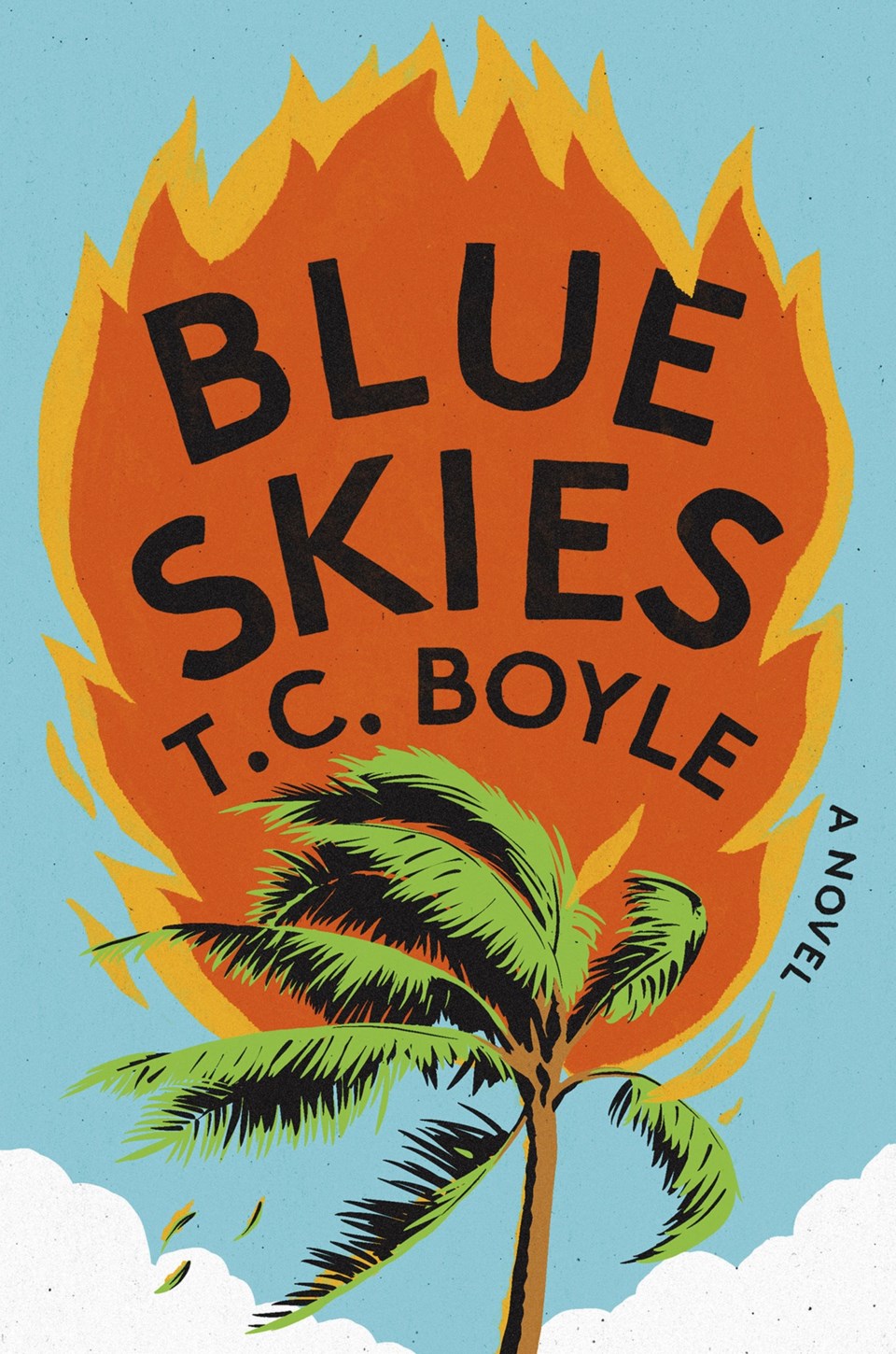“Blue Skies” by T.C. Boyle (Liveright)
There have been entire shelves of non-fiction books written about climate change. I’ve reviewed quite a few. They’re packed with truly frightening scenarios based on science. But somehow none of them are quite as devastating as T.C. Boyle’s latest novel, “Blue Skies.”
Set in a not-too-distant future, “Blue Skies" is a work of fiction that begins with the premise: How will humans really react when their day-to-day lives are impacted by climate change? Boyle’s answer: They won’t. Much. Yes, if they live in almost-underwater Florida like Cat, the daughter in the book, they’ll fight back the ever-creeping mold in their house on stilts and pilot a boat to their kid’s pre-school. And if they’re an entomologist like Cat’s brother, Cooper, they’ll cover all their exposed skin and work outdoors in the dangerous California sun, trying to collect data on why all the insects are dying.
But all that, argues Boyle, won’t stop horrible things from happening to these people. To go into greater detail spoils the “fun” of this darkly comic novel. Cat and Cooper’s mom is given a sedative by her husband when she hears about Cooper’s fate, which she reluctantly takes “as if she could… pretend life was all blue skies and sunshine.”
The point of Boyle’s satire, of course, is that she can’t. No one can. Climate change is already here and to expect enough humans to change their ways to significantly mitigate the impact is laughable. So as the book’s characters continue to fly from Florida to California for family milestones like weddings and childbirths that become increasingly more grotesque, readers are treated to snippets in the news about a global refugee crisis and a defunct mall being retrofitted with row upon row of carbon dioxide-scrubbing plants. It all seems so very plausible outside the pages of the book. Humanity, in the end, is like the insects Cooper studies — we’re resilient, we adapt — but the problem, as Cooper himself admits, is that there are trillions more bugs than humans.
And yet just before Boyle drives his characters over the edge, he eases off the accelerator long enough to find a little hope. Readers will have to wait until the final pages to feel it, but if along the way they’re convinced by a novel to eat more plants or drive an electric vehicle, “Blue Skies” could be a very influential book indeed.
Rob Merrill, The Associated Press



